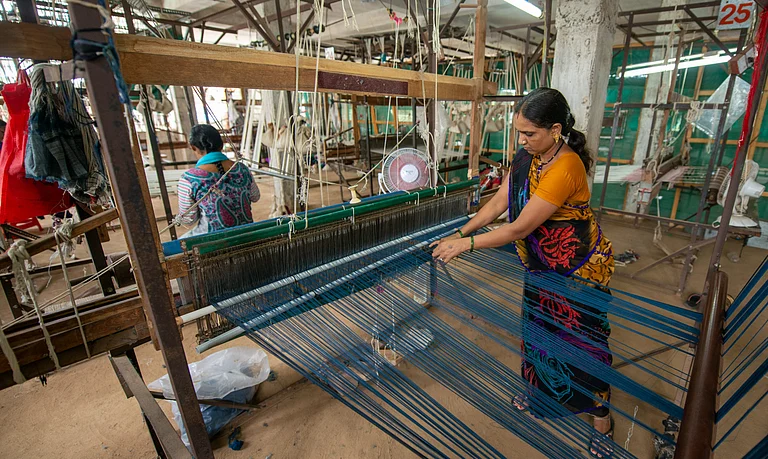Finance Minister Nirmala Sitharaman on Wednesday said India is well placed to contribute towards strengthening and diversifying supply chains.
Speaking at the launch of 'Partnership for Resilient and Inclusive Supply-chain Enhancement' on the sidelines of the World Bank-IMF Annual Meetings in Marrakech, Morocco, Sitharaman said India is undertaking some of the most robust climate actions through its Nationally Determined Contributions (NDCs).
This includes an ambitious programme for a transition to clean energy and the RISE partnership is completely in sync with India's domestic policy of prioritising Clean Energy.
Highlighting the hard-earned consensus by the G20 India Presidency on the need to rapidly scale up renewable energy capacity, the finance minister said the Global Biofuels Alliance initiative launched by Prime Minister Narendra Modi, on the sidelines of the G20 Leaders Summit in New Delhi, is a positive step towards promoting global cooperation on sustainable biofuels and innovation on clean energy.
She said the New Delhi Leaders Declaration calls for tripling renewable energy capacity globally by 2030.
Underlining India's key priorities for clean energy, which include solar, offshore wind, green hydrogen and battery storage, she said India has advanced its target for non-fossil fuel-installed electric capacity to 50 per cent, having achieved the previous target of 40 per cent ahead of 2030.
She stressed that India is committed to bring down energy storage costs and reduce the emissions intensity by 45 per cent by 2030 from 2005 levels.
Emphasising on India's growing economy and its policy intent at the highest level, Sitharaman said, "India is well placed to contribute to strengthening and diversifying supply chains, besides its readiness to play a bigger role in the supply chain of clean energy products."
The RISE partnership is an initiative of the World Bank and G7 Japan Presidency for developed and developing countries, providing an opportunity between G7 members, interested developed countries, and low-and middle-income countries to build momentum for enhanced collaboration on global issues of Supply Chain diversification of Clean Energy products and tackling Climate Change.


























.jpg?w=200&auto=format%2Ccompress&fit=max)




